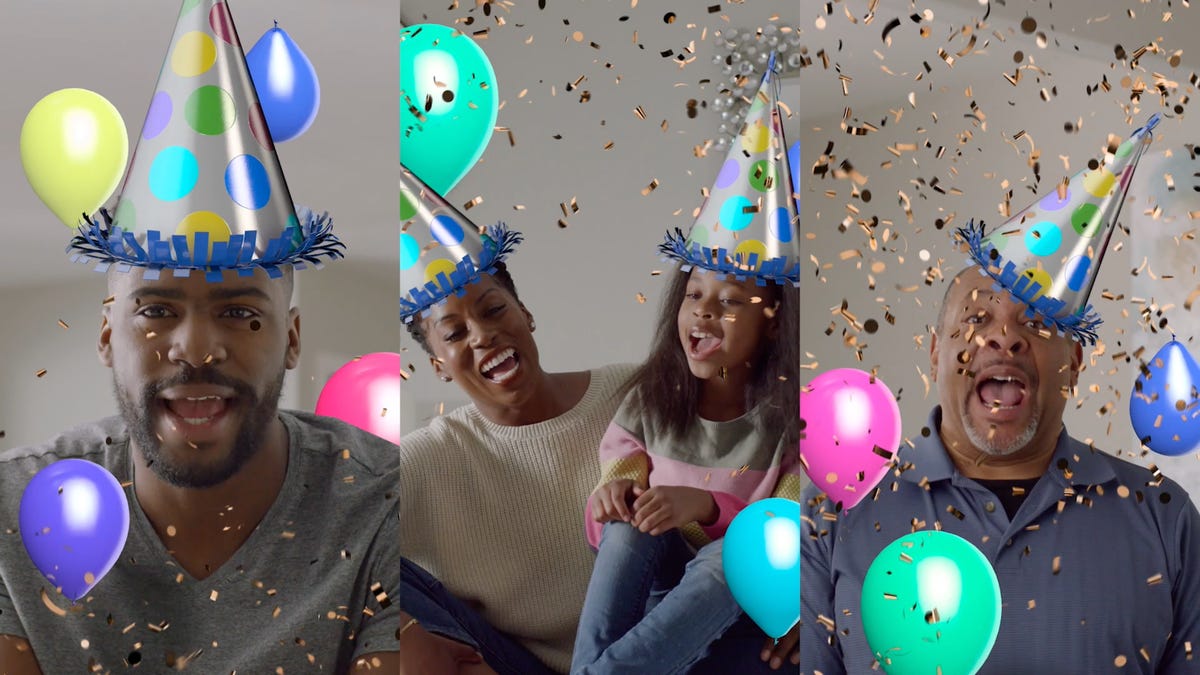Facebook's adding multiplayer AR to video calls in Messenger and Instagram
Expect weird hats and other shared experiences, like in Facebook's Portal devices.

A lot more AR effects (like, say, party hats) are coming to Facebook video calls soon.
Facebook's augmented reality efforts are pushing a little further into the territory of video calls. A deeper support for shared AR effects and games in video calls are being supported across Facebook's mobile apps, including Messenger and Instagram, the company announced at its virtual F8 developer conference Wednesday.
These shared effects aren't new: Facebook's dedicated video-chat device, Portal, has AR effects for chats, plus AR-enhanced games and storytelling modes. The features crossing over into Messenger and Instagram look similar to those features, but for phones.
AR effects have previously been available on Messenger and Instagram, but support for multiplayer will allow for people in one chat or game to share common effects or experiences.
Donut nose game? Why not?
Support for multiplayer AR modes will work across Messenger, Instagram and Facebook's Portal devices. The company's also planning to release a few early examples of creator-made AR experiences on Messenger this week.
Facebook isn't the only company to be exploring multiperson shared AR right now: Niantic, Snapchat, Microsoft, Google and Apple are all pushing forward with their own interpretations and applications of ways to mix layers of virtual objects onto shared real-time phone interactions. But what's interesting about Facebook's AR efforts, via its SparkAR developer tools, is that the company still doesn't have its own AR headset yet. Meanwhile, Facebook's Oculus VR devices lean on virtual avatars instead of video calls for shared experiences. Eventually, Facebook's VR and AR efforts look bound to intertwine, possibly starting with a pair of smartglasses being released later this year.
Facebook announced that its SparkAR platform now has 600,000 creators in 190 countries, with 2 million AR filters and effects already created to date.

